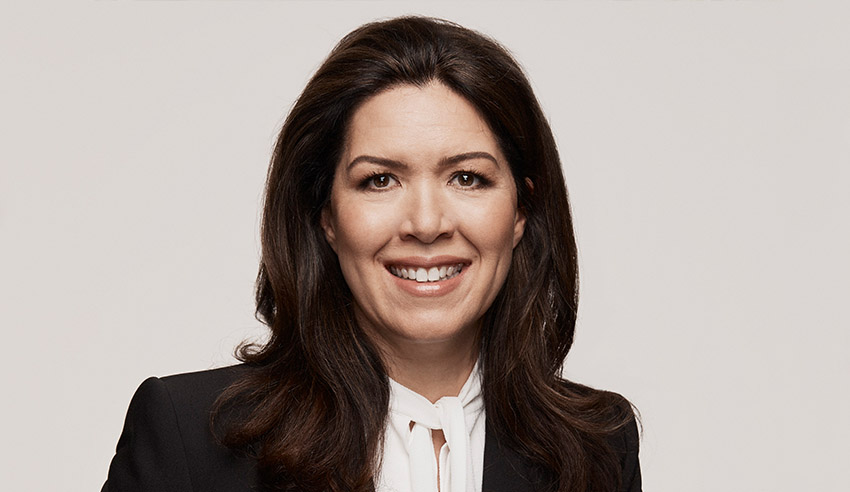Bar to Founder: How setting a standard of behaviour helped one barrister thrive
Immediation managing director and barrister Laura Keily moved from one male-dominated profession into another but thrived in a way that allowed her to challenge the status quo and set a new standard of behaviour and culture. Speaking to Lawyers Weekly, she breaks down how her company addressed equality in the legal profession.

Ms Keily said that her background as a corporate lawyer and as a barrister has really prepared her to stand out as a successful, female managing director in an environment that is just as male-dominated as the last. Rather than letting it overcome her, Ms Keily said that she tends to thrive in these environments because she’s used to them.
To continue reading the rest of this article, please log in.
Create free account to get unlimited news articles and more!
Speaking to Lawyers Weekly for our International Women’s Day (IWD) series, Ms Keily said that there was more security moving from the bar – where others set a gender pay gap and make it harder to advance – to legal tech company Immediation.
“The standard of behaviour and culture is up to me to set the bar. That sets a much different environment to be in where you can bring to it what you want to bring to it and try to encourage other people in the organisation to collaborate and behave in a way that you want them to behave and also make sure that women are represented,” she said.
Ms Keily said that Immediation has made it a mission to go out and find people of a culturally diverse and gender-diverse background on purpose and “proactively hire that way”. Having so much diversity on the workplace floor – whether that be different cultures, gender identities or sexual orientations – has meant that her company fostered an environment “for the best development of ideas”.
When asked what the pay gap looks like at Immediation, Ms Keily said that she has made sure to never disadvantage one gender or another. Often, she finds herself pushing women up and ensuring that they are advocating for themselves.
She added that making sure there is equal representation of women in positions of power looks good on paper, but just because it might does not mean that different opportunities to advance are actually given out. Often, it means that solicitors, partners and barristers are filling a quota but without the work needed to succeed.
“We tried very hard to make sure that the quotas or targets are proactively maintained. The work is evenly divided, and we don’t necessarily preference. We make sure that there is very good work going to everyone,” Ms Keily said.
Although Ms Keily said that she never noticed any pushback during her journey to CEO, she said she was sure it would have “raised some eyebrows”. She said that she remained confident that the market needed to be led down a different path of adopting new technology – and filling a gap that courtrooms and mediation needed – so it was “the right thing to do”. If anything, COVID-19 has proven that.
Another thing COVID-19 has proven is that all people can enjoy their personal lives without it interfering with work responsibilities, at least at Immediation. Ms Keily said that the “door has been opened” into the idea that staff – men and women – no longer have to hide that they have childcare or other caretaking roles.
“One of the things we really treasure in Immediation is that parents are very much welcome. We are used to having children present in meetings or behind the video camera, so it has always been something really special that mums and dads of the staff are not just treated the same but are actually welcomed. I’ve always been really proud in particular of the fathers who are really active, which is my model at home,” she said.
Immediation has not only been created to substitute court proceedings with easier mediation outside of it, but it may have found a way to address a complaints management system that is needed more than ever in Parliament and in legal workplaces. Ms Keily said that this was “right in our sweet spot”.
“With what we’re seeing going on in Canberra at the moment, there seems to really be a need for independent, private and confidential dispute resolution where people feel safe to raise things. Hopefully we will see that happen,” Ms Keily said.
With her company, Ms Keily is breaking into a global market starting with New Zealand. Over the next few years, she hopes to see it expand into the US.
On advice for other women considering starting their own companies and creating a workplace from the ground up that values diversity and inclusion, Ms Keily cautioned them to be aware of how to “add yet another thing to the pile to juggle” but said that – after four years managing Immediation’s expansion – it was well worth it.
“Once you have carved out a space in your life and you have other people on board, then you really have to go for it and it’s really about having the tenacity and the work ethic to keep going no matter what,” Ms Keily said. “It’s certainly not for the faint-hearted because you end up working more hours than humanly possible to keep things going, which most people I imagine would have to do to start something new.
“From where I sit now and looking at what we have achieved in four years, it’s really extraordinary. We are still in the thick of it at the moment trying to get the plane off the ground, but it certainly feels worthwhile when I look back and think about all the hurdles we have overcome. It was certainly worth pushing through.”
Read more from this IWD series:






